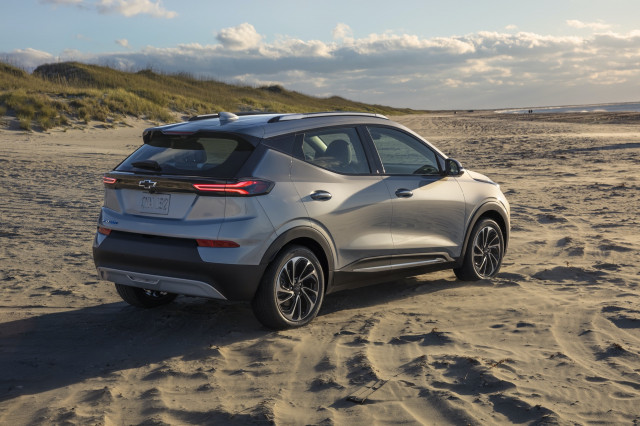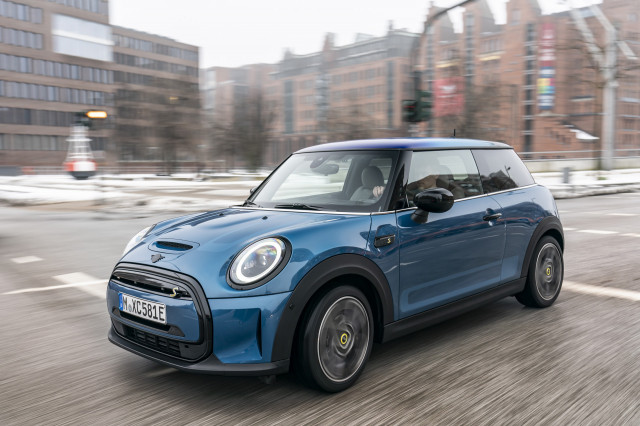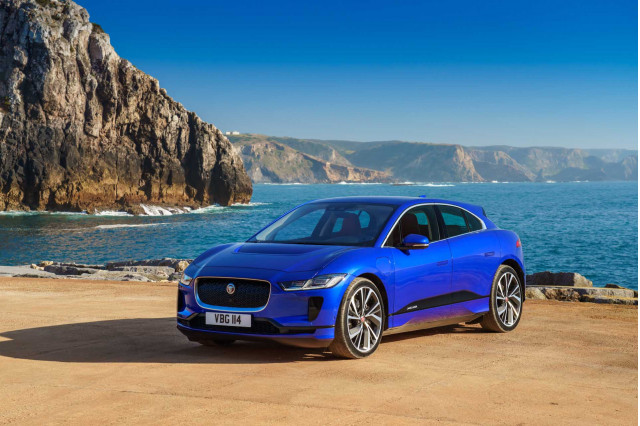GM, Jaguar, Volvo and other automakers to end gas cars, plan EV future
Tesla, Polestar, and Rivian, your table is about to get more crowded. In the first three months of 2021, at least four traditional automakers announced plans to transform their portfolio of passenger vehicles from internal combustion engines to full battery electric vehicles (BEV).
The timelines run from realistic to ambitious to bombastic, with 2025 as a transitioning year and 2040 as a target for these engines of the industrial age to become carbon neutral multinationals. Regardless of how and when, Volvo, Jaguar, General Motors, and others join relative upstarts Tesla and Rivian in thinking the combustion engine has run its course and electrics are the future.
Automakers, however, are like bad lovers, making bold promises subjected to the crosswinds of opportunity. Less than three weeks after the presidential election, General Motors made an abrupt about-face from supporting Trump’s legal fight to weaken California’s fuel economy laws to more soundly embracing a future propelled by electric vehicles. While Europe, China, and the U.S. markets appear ready to embrace more plug-in vehicles, automakers still need to meet the demands of other economies that might rely on less expensive and less sophisticated gas engines for longer.
Just like your mileage will vary, so do automakers plans. Here are a few of the many automakers pledging an all-electric future, and how far they have left to go.

2022 Chevrolet Bolt EUV
The brand that had pole position in the electric vehicle revolution in the ’90s plans to regain ground ceded to Tesla more recently. In January, GM announced plans to be net-zero carbon by 2040, and to eliminate new vehicles sold with tailpipe emissions by 2035. In less than four years, GM says 30 BEVs will be offered globally, and 40% of its models offered in the U.S. (not its sales volume) will be BEVs.
Currently, it offers the Bolt EV and forthcoming 2022 Bolt EUV crossover, Cadillac Lyriq luxury crossover, and GMC Hummer SUV. Yes, that Hummer, but resurrected for the EV age.
GM might be the largest automaker to make the EV pledge, but it’s not alone. Volkswagen confirmed plans this week to manufacture the batteries powering 70 planned BEVs by 2028. VW has not made the all-out all-electric pledge. Yet.

2022 Mini Cooper SE
This March, the BMW Group announced plans to transition its Mini brand of city cars and small crossovers to a fully electric fleet by the early 2030s. The British heritage brand owned by BMW will introduce its final car powered by an internal combustion engine in 2025. Popular in European cities and known for their fun driving characteristics, Mini’s small cars are prepping for growth in China, where it has partnered with Great Wall Motors on a joint plant capable of producing up to 160,000 units annually. Currently, the Mini Cooper SE and its meager 110-mile range, is the only Mini electric on the market.
Hyundai Ioniq

2022 Hyundai Ioniq 5
The Ioniq name will transition from a model to a sub-brand, like how the Genesis luxury sub-brand developed out of a luxury nameplate. Hyundai announced last August that the Ioniq compact sedan currently offered as a hybrid, plug-in hybrid, or BEV will serve as the banner for at least three electrics by 2025. The 2022 Ioniq 5 compact crossover debuted in March, and will be followed by the Ioniq 6 sedan and Ioniq 7 “large SUV.”

2020 Jaguar I-Pace
The British luxury brand plans to distinguish itself from its Jaguar Land Rover family with a dedicated electric vehicle platform under its “Reimagine” strategy, the brand announced in February. In the long term, JLR plans to be a net-zero carbon business by 2039.
More immediately, the subsidiary of the Tata Motors multinational based in India will transform Jaguar into an all-electric brand by 2025. Six battery electric SUVs are planned across the JLR family in the next five years, with the first Land Rover electric launching in 2024. The sedan-heavy lineup is already being pared down, with the discontinuation of the XE and delay of the next XJ.
By the end of the decade, every model will be offered in electric form, and JLR is developing hydrogen fuel-cell technology as well. For now, JLR sells the Jaguar I-Pace crossover with a range of 234 miles.
Volvo

2021 Volvo XC40 Recharge
Volvo might be the furthest along on its EV pledge, with the XC40 Recharge on the market and 2022 C40 Recharge coming soon, as well as more models on the way from Polestar, its all-electric cousin. Volvo was also one of the first to cause a furor by saying it would electrify its whole fleet with at least mild hybrids by 2020. It did, and earlier in March, it pledged full BEVs by 2030.
Volvo’s chief technology officer Henrik Green summed up what many automakers are reckoning with in a statement about Volvo’s plans. “There is no long-term future for cars with an internal-combustion engine,” he said.

